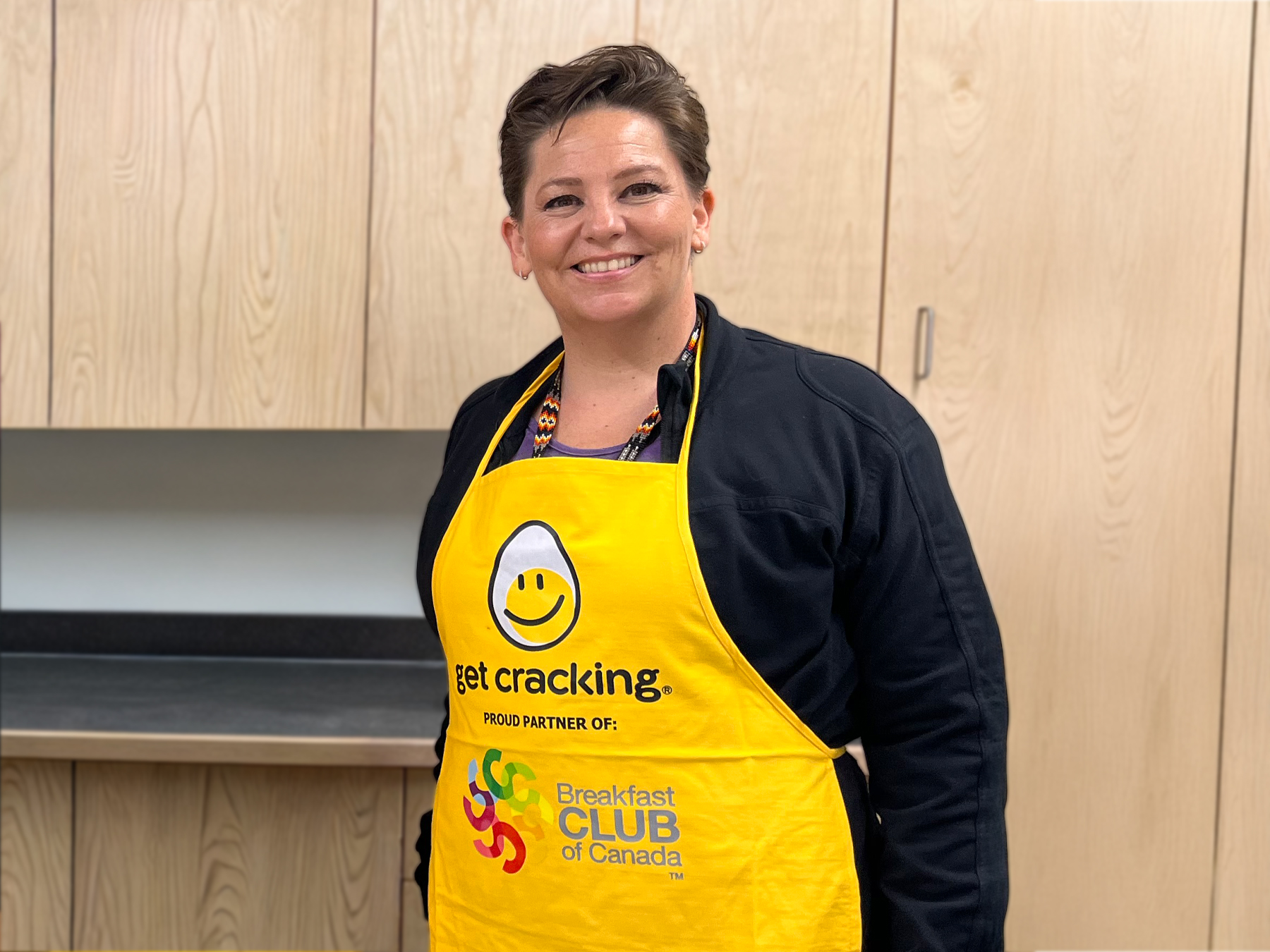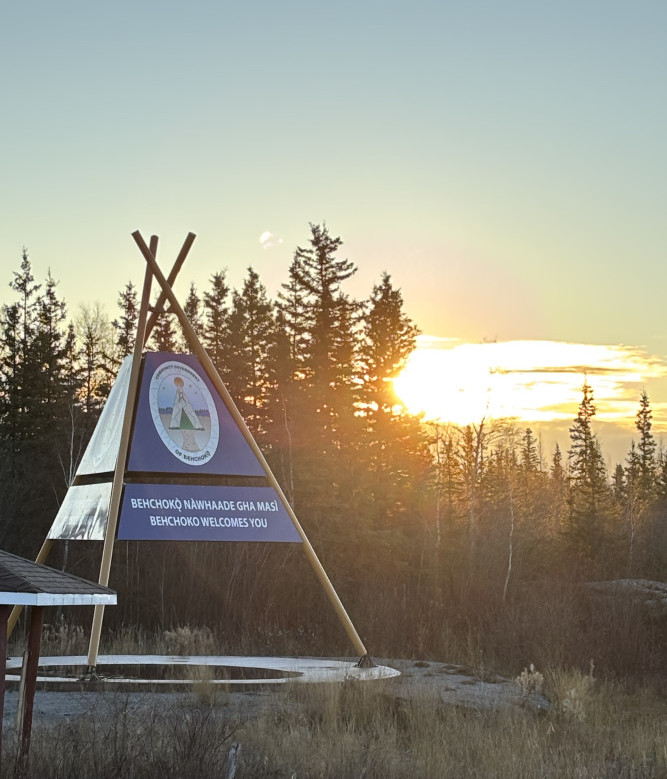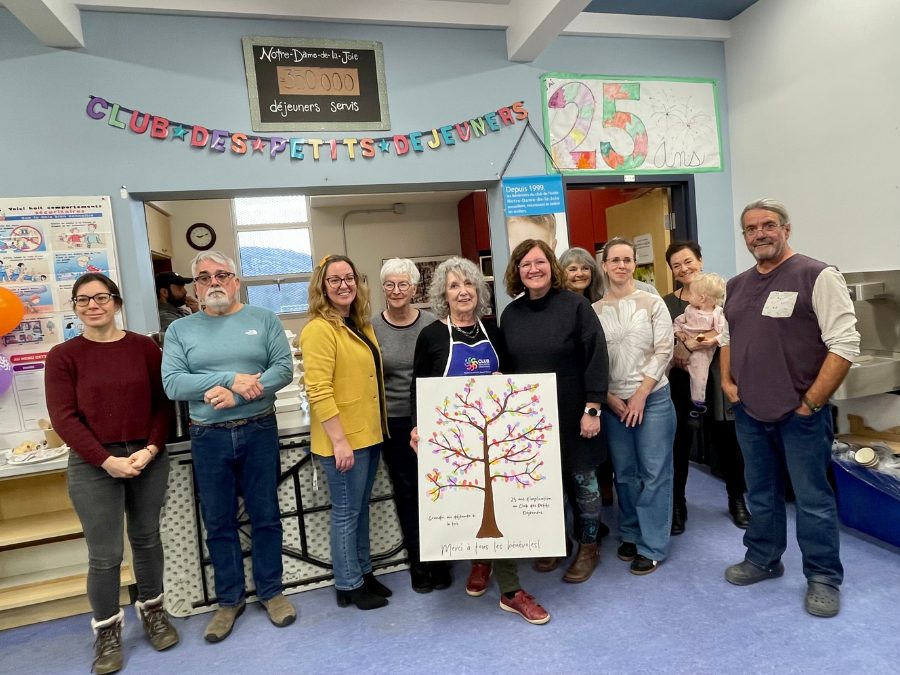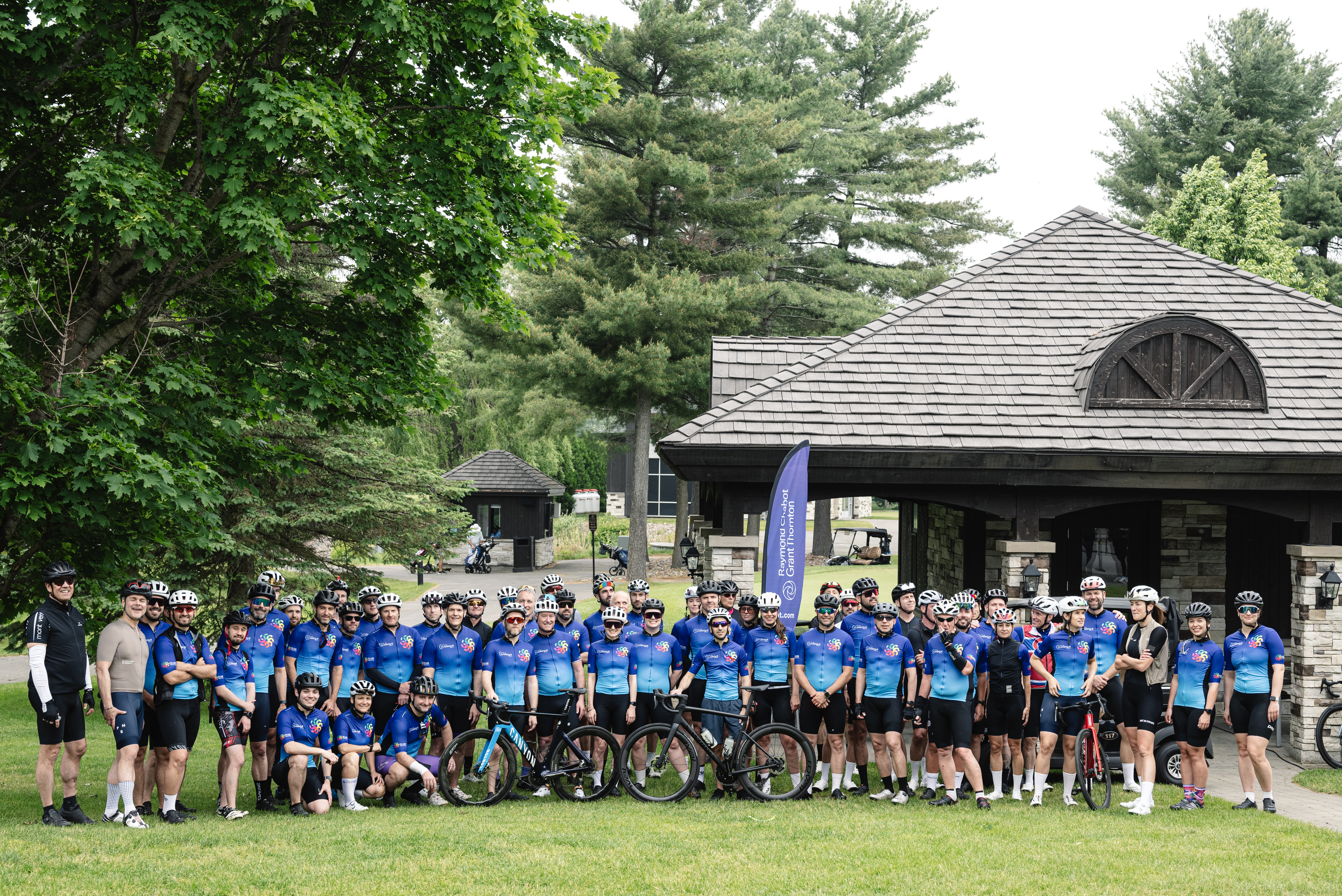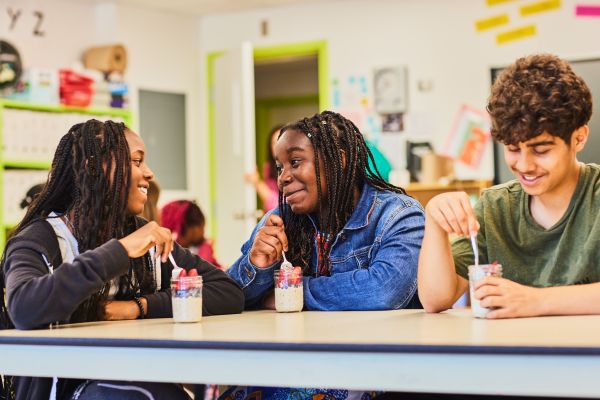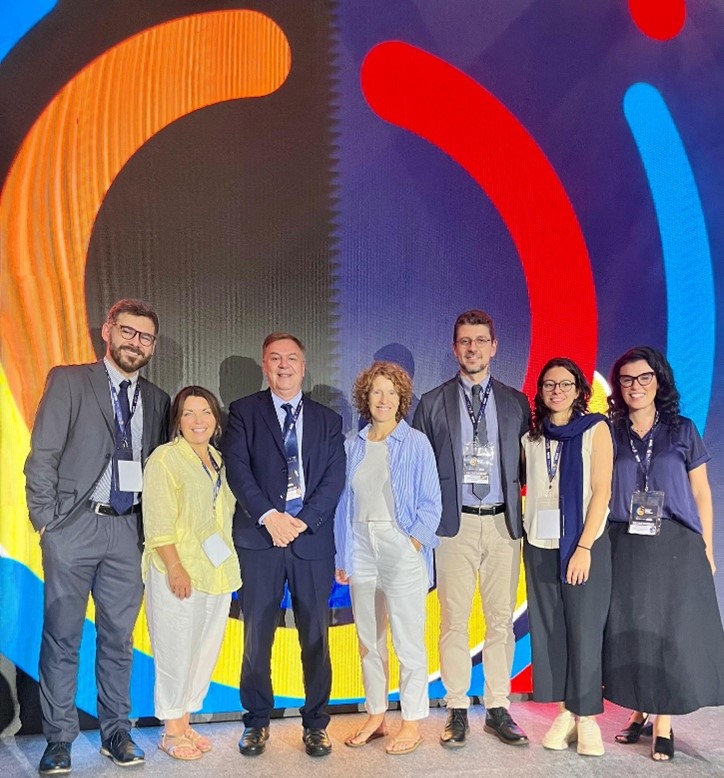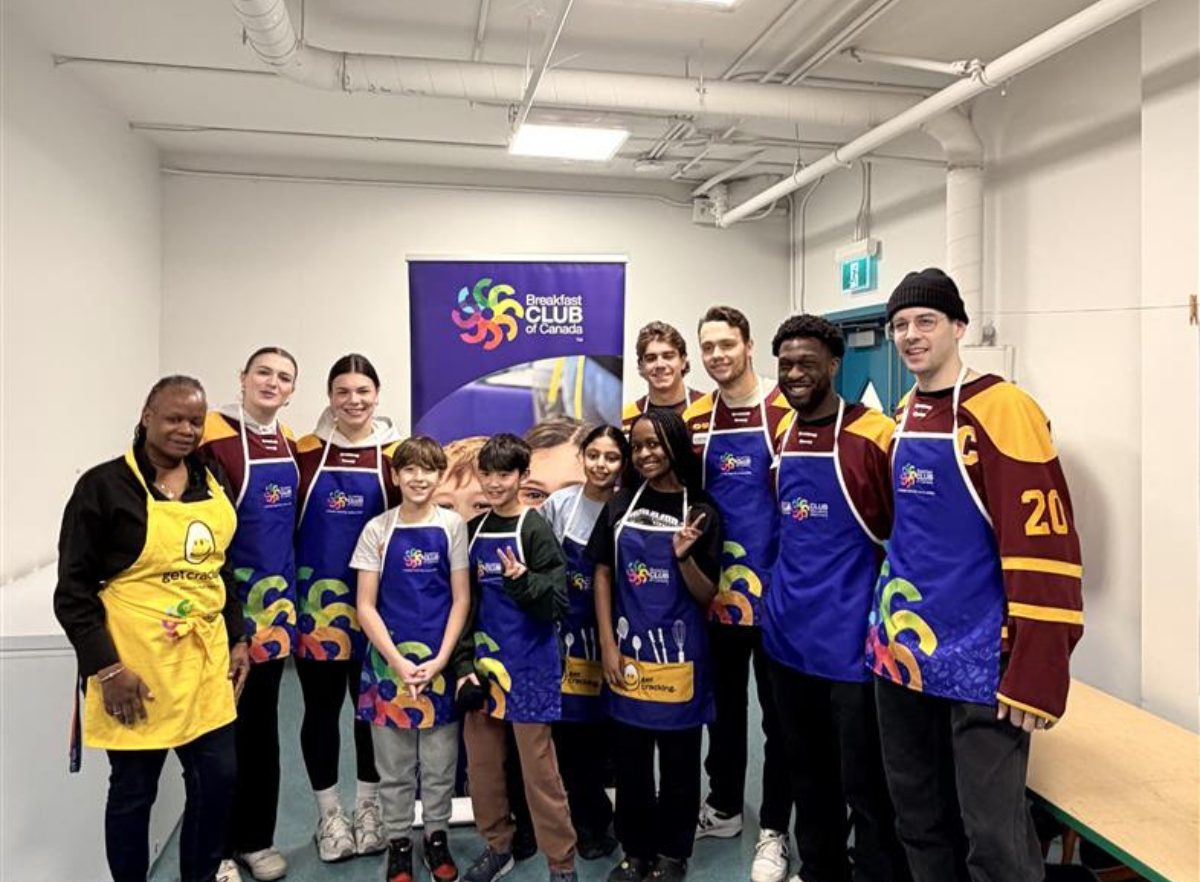
On the road: a journey across the coast
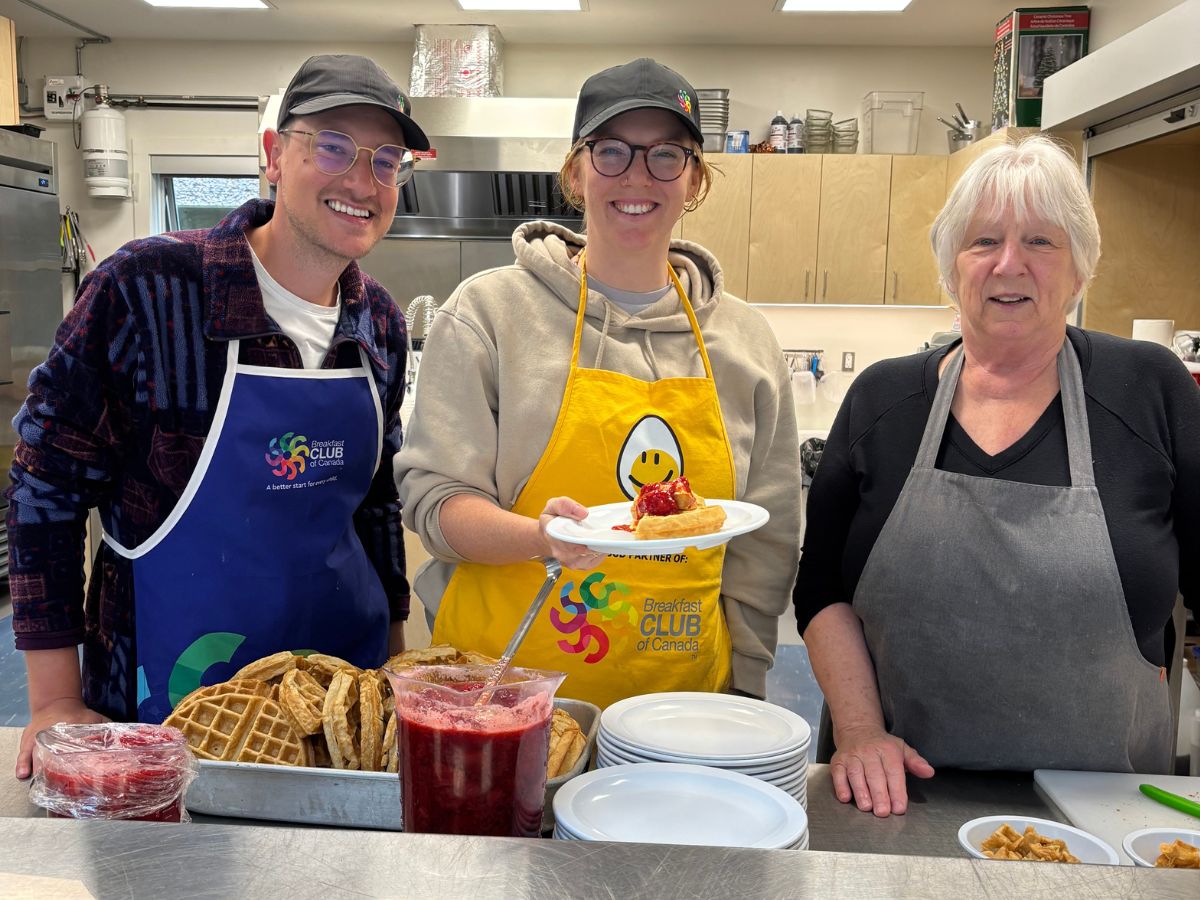
By Taelyr Keely and Jessica Smith, Program Coordinators
In June 2025, we packed our bags and travelled for a week. We visited schools on the Sunshine Coast, Northern Vancouver Island, and in the Comox Valley.
From ferry crossings to winding logging roads, we set out to see how breakfast programs are operating—and impacting—students in some of the most remote communities in British-Columbia.
We thought we were going to observe breakfast programs. What we found was something much deeper: stories of care, resilience, and connection.
More than just a meal
In Powell River, a mother-daughter volunteer team greeted us with huge smiles and a kitchen full of breakfast pizzas on naan bread made with fresh ingredients. In another school, kids lined up at a kitchen window, excited to get homemade spinach muffins, rebranded as Monster Muffins for fun. At each stop, we saw people using food as a tool for dignity and joy.
“If they don’t see what they want, I make it for them,” one cook told us, handing a smoothie to a shy student. It’s not just about feeding them—it’s about knowing them.”
Kitchens, culture, and community
We visited schools where food is part of the culture. We saw parsley drying in the school garden and a smokehouse for preparing salmon.
Students helped cook traditional foods with Elders. Although one school was built on land that is not the Nation’s traditional territory, the kitchen became a place for reconnection.
“This school is the heart of our community,” said one principal. “It’s where students feel safe. Where they’re fed. Where they’re known.”
Remote roads, real challenges
Some schools face huge barriers: expensive groceries, aging equipment, isolation. In Zeballos, the cook could not come to the program—so we made breakfast ourselves. The principal drives six hours round-trip on weekends just to buy groceries. The breakfast programs persist because people care deeply.
“Breakfast isn’t just about nutrition,” one educator shared. “It’s the start of something better for these kids.”
The heart of it all
Even with limited budgets and many challenges, we noticed a common pattern. People came in early every morning. They were there to feed and care for their students.
High school students prepared meals for classmates. Cooks mixed culture and wellness. Volunteers imagined new possibilities for children. This trip showed us that breakfast can change everything. We don’t just feed students. We feed futures.

